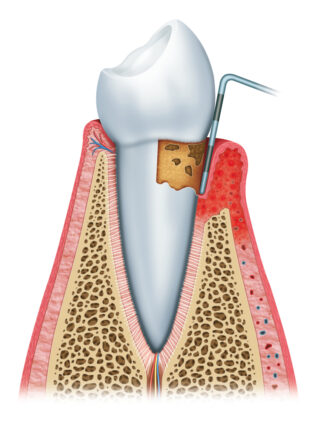
More Dental Health Articles
Low Dose Doxycycline Therapy: A Promising Approach to Enhance Periodontal Dental Health

Maintaining optimal periodontal dental health is crucial for a bright and healthy smile. Periodontal diseases, such as gingivitis and periodontitis, can lead to tooth loss and have systemic health implications. While conventional treatments like scaling and root planing are effective, emerging research suggests that low-dose doxycycline therapy may offer a promising adjunctive solution in the fight against periodontal diseases.
Understanding Low Dose Doxycycline Therapy
Doxycycline is a broad-spectrum antibiotic that has been used for decades to treat various bacterial infections. In recent years, researchers have discovered its potential as an adjunctive therapy for periodontal health. Unlike traditional high-dose antibiotic regimens, low-dose doxycycline therapy employs sub-antimicrobial doses, which have anti-inflammatory and collagenase-inhibiting properties without promoting antibiotic resistance.
Benefits of Low Dose Doxycycline Therapy
- Inflammation Reduction: Low-dose doxycycline can suppress the production of inflammatory mediators, helping to manage the inflammation associated with periodontal diseases. This, in turn, aids in reducing gingival swelling and bleeding.
- Collagenase Inhibition: It inhibits collagenase enzymes responsible for the degradation of connective tissue in the periodontium, preserving the integrity of periodontal structures.
- Minimal Side Effects: Low-dose doxycycline has fewer side effects compared to higher doses, making it a safer option for long-term use.
- Prevents Antibiotic Resistance: The sub-antimicrobial dosing approach minimizes the risk of antibiotic resistance, a growing concern in healthcare.
Application in Periodontal Health:
Low-dose doxycycline therapy is typically administered as a supplement to standard periodontal treatments, such as scaling and root planing. It can be taken orally in tablet form or as a locally delivered gel. Research suggests that this adjunctive therapy can help improve periodontal parameters, including reduced pocket depth and enhanced clinical attachment levels.
Low-dose doxycycline therapy presents a promising avenue for enhancing periodontal dental health. Its anti-inflammatory and collagenase-inhibiting properties make it a valuable adjunct to traditional periodontal treatments. However, it is essential to consult with a qualified periodontist to determine if low-dose doxycycline therapy is suitable for your specific case. Together with proper oral hygiene practices, this therapy can slow the progression of this chronic disease, contribute to the maintenance of a healthy and beautiful smile for years to come.
Other Articles You May Find of Interest...
- Appliances Are In Now: How To Manage TMJ Disorder
- Why The Tooth Fairy Is Very Fun – and Important!
- Let’s Smile Dental’s 7&Up Club
- Strengthening Smiles: Understanding the Importance of Splinting Periodontally Involved Teeth
- Understanding Soft Tissue Grafting: A Key To Periodontal Health
- New Solutions for Dentures and Dental Implants
- Cerec Dental Technology

















